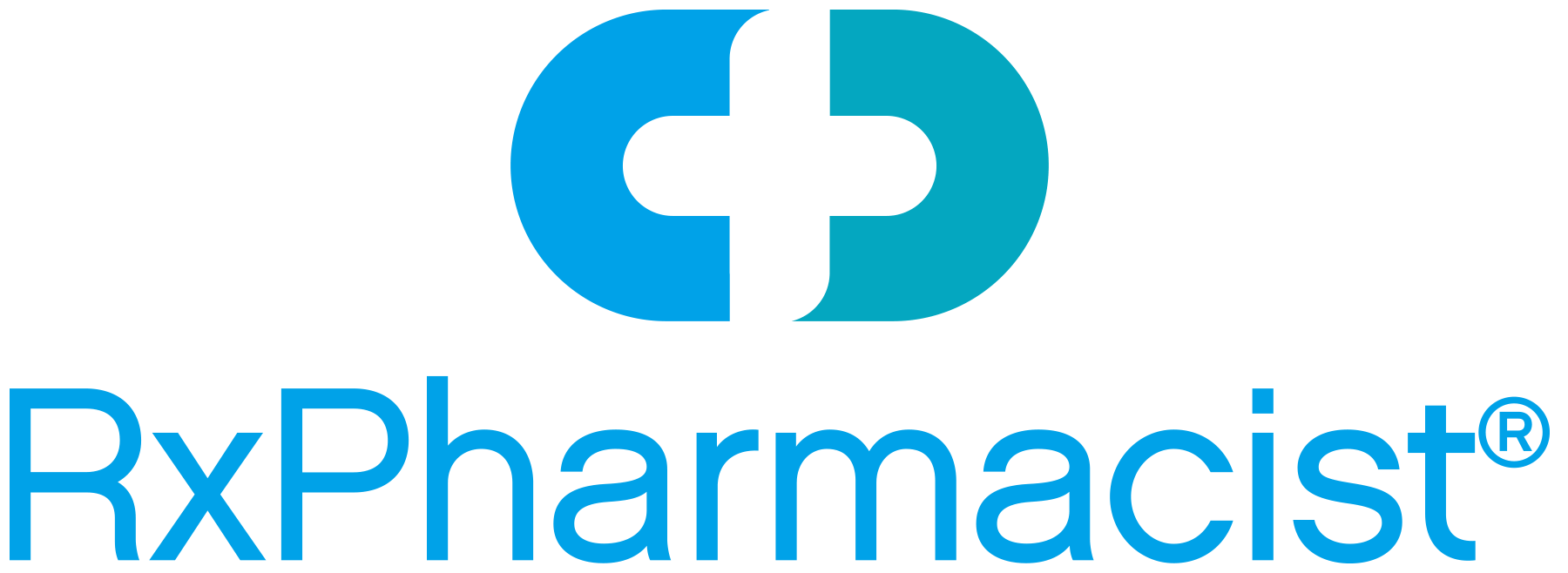
It is undeniable that the role of a pharmacist has advanced from the traditional “pill counter” to trusted health care professionals who contribute to patient outcomes through extensive management of drug therapy. According to a published study by the American Association of Colleges of Pharmacy (AACP), the primary practice that PharmD graduates wish to pursue upon graduation is community pharmacy. To outline why this is relevant, the Bureau of Labor Statistics (BLS) anticipates a decline in employment for pharmacists within a traditional retail environment, thus posing a threat to many who wish to follow this route (our full post entitled, “Pharmacist market saturation and career outlook“ can be found here). While all of this may be concerning, pharmacists are fortunately well-equipped with suitable skills that allow them to rise above orthodox practice and pursue nontraditional opportunities while maintaining impactful frontline care. Favorably, the American Society of Health-System Pharmacists (ASHP) has acknowledged this matter and launched its Practice Advancement Initiative (PAI), providing pharmacists with future practice models that may act as an option for those exploring alternative career paths. The campaign advocates for advancing the role of a pharmacist by establishing changes to current pharmacy resources, ultimately promoting career opportunities and patient care simultaneously.
While the number of PharmD graduates continue to increase and advancement of traditional pharmacy begins to slow, you may be asking yourself “what other roles can be filled by pharmacists?” This article will dive into more nontraditional and innovative roles that remain both unique and effective in our dynamic health care world today.
Non-traditional career opportunities:
| Type | Description | Where to find information |
|---|---|---|
| Nuclear Pharmacy | Nuclear pharmacists focus on the preparation, monitoring, drug information, storage, and handling of radioactive medications. In addition to this, pharmacists in this role provide quality control, patient safety, and counseling to those who require a more unique class of medications. The need for a pharmacist within a nuclear medicine team is impeccable as it allows for a boost in pharmaceutical care to patients. | National Association of Nuclear Pharmacies (NANP) |
| Specialty Pharmacy | Specialty medications are typically referred to as high-cost medications that focus more on intricate disease states such as cancer, transplant, hepatitis, HIV, and multiple sclerosis. The prevalence of patients who require specialty medication is increasing, thus necessitating an increased demand for specialty pharmacists who can provide comprehensive care and close management. Due to the increased complexity in the delivery of specialty pharmaceuticals, many health plans have established approaches to help with the obstacles associated with the distribution of these drugs to patients (classified as insourcing and outsourcing): Insourcing: Staff are hired to manage the high demand and cost of these medications. These pharmacists are responsible for purchasing, handling, educating physicians and patients, and monitoring patient outcomes. Outsourcing: Contracting with pharmacies that have established specialty pharmaceutical services to access its expertise, technologies, and resources. Regardless of the approach a managed care organization wishes to pursue, both insourcing and outsourcing have identical requirements that include: Negotiating discounted prices, employing staff with specific expertise (with respect to administration, utilization, and monitoring of specialty medications), and accessing centralized distribution points for specialty pharmaceutical manufacturers | National Association of Specialty Pharmacy Academy of Managed Care Pharmacy (AMCP) |
| Veterinary Pharmacy | While veterinary pharmacy is not a new area of pharmacy practice, it is expected to expand each year and become classified as a more unique career opportunity. Veterinary pharmacists may establish a career with veterinary schools, pharmaceutical companies, manufacturers, and a variety of regulatory agencies (including the FDA through the Center of Veterinary Medicine). An individual interested in working with animals may make this a suitable option; however, additional education and training through residency is required and opportunities are limited usually to academic institutions or professional organizations. | Society of Veterinary Hospital Pharmacists |
| Compounding Pharmacy | What originally began as physicians taking on both the prescribing and compounding role of patient medication has now evolved to become the responsibility of a pharmacist since the late 19th century. At one point, during the early progression of the 20th century, the manufacturing of mass medications monopolized the service of compounding pharmacies. Today due to the increased need to formulate patient-specific drugs to tailor drug therapy, there appears to be a resurgence in the demand for compounding pharmacists. Compounding services allow pharmacists to prepare medications that target pain management, dermatology, pediatrics, geriatrics, and hormone replacement therapy. | Alliance for Compounding Pharmacy APhA National Community Pharmacists Association |
| Toxicology | Pharmacists in this role can serve as toxicology specialists within poison control centers. In these centers, they facilitate patients who have ingested or otherwise have been exposed to medications or household chemicals. Pharmacists will direct patients to the proper course of action and will subsequently follow-up with them depending on the severity of the situation. | American Association of Poison Control Centers |
| Telepharmacy | Telepharmacy aims to meet the needs of today’s healthcare consumers through the use of telecommunication. The application of this tool covers a wide and diverse scope, including drug review and monitoring, dispensing, sterile and non-sterile compounding verification, medication therapy management, patient assessment, patient counseling, clinical consultation, outcomes assessment, decision support, effective drug information, and electronic prescription filling. Telepharmacy technology allows pharmacists to provide communication and remote care delivery. It significantly improves quality of patient care and medication process and safety by increasing accessibility and efficiency through reducing the need to travel. Especially during the ongoing pandemic, telepharmacy has established itself as an attractive tool to positively impact patient outcomes. Individuals who have been tested for COVID-19 could have a consultation with the pharmacist on the phone or video conferencing platforms such as Skype or zoom for follow-up care. Telepharmacy aims to improve U.S. economy and healthcare efficiency. | ASHP’s Statement on Telepharmacy 2019 NIH Study on Telepharmacy |
| Regulatory Sciences | Pharmacists also play a huge role in regulatory drug and biologic development at the Food and Drug Administration (FDA). Many pharmacists work at the FDA and if you are lucky, you may score a rotation site at the FDA to learn more what they do from drug labels, to drug reviews and ensuring regulations are met. | FDA Regulatory Fellowships Regulatory Affairs Professionals Society (RAPS) |
| Long-Term Care Pharmacy | Pharmacists can pursue consultant pharmacy jobs, such as long-term care pharmacy or home health care pharmacy. This is usually in the setting of hospice, nursing home facilities, group homes, etc. Pharmacists can speak with family members and patients about their treatments. Also, pharmacists can take care of patients with various disease states, such as multiple sclerosis, developmental challenges, etc. | American Society of Consultant Pharmacists |
| Pharmaceutical Industry | In the industry setting, pharmacists have many opportunities to be involved in. They can strive for research and development, quality assurance, marketing, sales, medical affairs, pharmacovigilance, regulatory affairs, and many other areas. These opportunities can be in the U.S. or global settings. Pharmacists can be involved in many different disease states dependent on the pipeline of a given company. | Industry Pharmacists Organization |
While additional opportunities may require fellowship or residency training, pharmacists can pursue many different career areas. Doing research on career options can help prepare you early on in your career development in deciding which post-graduation path to prepare for in order to be a great candidate when application season arrives. There are still many other pockets of careers we did not dive into such as hospital pharmacy, medication therapy management (MTM), consulting, and data analytics. The PharmD degree is versatile and allows the flexibility of pharmacists to create their own unique careers outside the ‘box’ of retail and hospital pharmacy. As health care transforms, pharmacy roles will also grow, allowing pharmacists to take on new and unique roles. The American Pharmacist Association (APHA) does a great job of specifically listing many career options for pharmacists, so if you are in a predicament about which career to choose, visit the APHA career option website to learn about the various fields in which pharmacists can utilize their degree.
Best of luck in your career searches!
Dagmara Zajac
RxPharmacist Team
References:
- 6 Things to Know About Telepharmacy During COVID-19. (n.d.). Retrieved September 26 2020, from https://blog.cureatr.com/6-things-to-know-about-telepharmacy-during-covid-19
- ASHP Statement on Telepharmacy. (n.d.). Retrieved September 26 2020, from https://www.ashp.org/-/media/assets/pharmacy-informaticist/docs/sopit-bp-telepharmacy-statement.ashx
- Bai, S., Hertig, J. B., & Weber, R. J. (2016). Nontraditional Career Opportunities for Pharmacists. Hospital pharmacy, 51(11), 944–949. https://doi.org/10.1310/hpj5111-944
- Kramer, M.H. (2019, January 14). Retrieved September 22, 2020, from https://www.thebalancecareers.com/veterinary-pharmacist-125836
- Specialty Pharmaceuticals. (July 18, 2019). Retrieved September 27 2020, from https://www.amcp.org/about/managed-care-pharmacy-101/concepts-managed-care-pharmacy/specialty-pharmaceuticals
- What is compounding? (n.d.). Retrieved September 22, 2020, from https://www.medisca.com/compounding/what-is-compounding
- Pharmacy career pathways: Pharmacy is right for me. Pharmacy for me. https://pharmacyforme.org/why-pharmacy-may-be-right-for-you/career-pathways/#1467912665208-3523991f-bdff. Published March 26, 2019. Accessed November 3, 2022.
- Career Option Profiles. American Pharmacists Association. https://aphanet.pharmacist.com/career-option-profiles. Accessed November 5, 2022.
